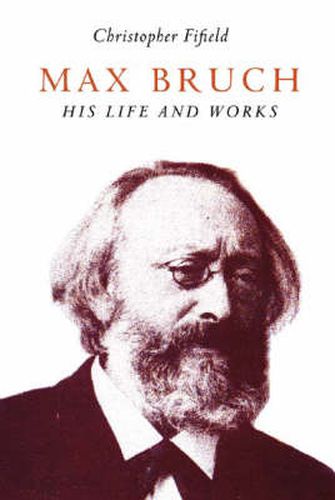Readings Newsletter
Become a Readings Member to make your shopping experience even easier.
Sign in or sign up for free!
You’re not far away from qualifying for FREE standard shipping within Australia
You’ve qualified for FREE standard shipping within Australia
The cart is loading…






Max Bruch (1838-1920), the German composer best known for his Violin Concerto in G minor, was in his day, a famous conductor and teacher as well as a prolific composer; yet he has been sadly neglected, perhaps in comparison to his contemporary Brahms. In this book - the only full-length study of Bruch - the author provides a richly documented account of Bruch’s career as music director and conductor, including a spell with the Liverpool Philharmonic Society from 1880-1883, and as a teacher at the Royal Academy of Arts in Berlin from 1892 until his retirement in 1911, where Vaughan Williams was one his pupils; he paints a picture of a proud and sensitive man, whose talents were perhaps left behind at a time of rapid musical development. The book also offers a musical analysis of his one hundred published works, including three operas. CHRISTOPHER FIFIELD is foremost a conductor, but also a writer on music history (Grove, DNB, Viking Opera Guide, Oxford Companion to Music), the author of a biography of Hans Richter, the editor of the letters and diaries of Kathleen Ferrier, and a recent history of the music agents Ibbs and Tillett.
$9.00 standard shipping within Australia
FREE standard shipping within Australia for orders over $100.00
Express & International shipping calculated at checkout
Max Bruch (1838-1920), the German composer best known for his Violin Concerto in G minor, was in his day, a famous conductor and teacher as well as a prolific composer; yet he has been sadly neglected, perhaps in comparison to his contemporary Brahms. In this book - the only full-length study of Bruch - the author provides a richly documented account of Bruch’s career as music director and conductor, including a spell with the Liverpool Philharmonic Society from 1880-1883, and as a teacher at the Royal Academy of Arts in Berlin from 1892 until his retirement in 1911, where Vaughan Williams was one his pupils; he paints a picture of a proud and sensitive man, whose talents were perhaps left behind at a time of rapid musical development. The book also offers a musical analysis of his one hundred published works, including three operas. CHRISTOPHER FIFIELD is foremost a conductor, but also a writer on music history (Grove, DNB, Viking Opera Guide, Oxford Companion to Music), the author of a biography of Hans Richter, the editor of the letters and diaries of Kathleen Ferrier, and a recent history of the music agents Ibbs and Tillett.